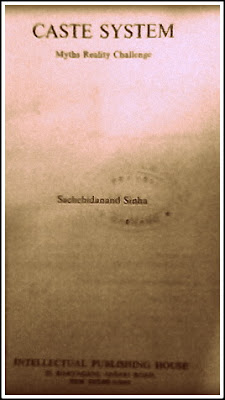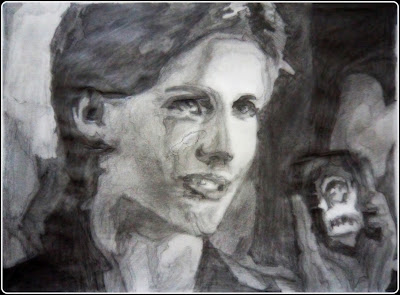तू अगर दोस्त है तो नसीहत ना कर खुदा के लिए...
मेरा ज़मीर ही काफी हैं मेरी सज़ा के लिए...
सामान सौ बरस का हैं पल की खबर नहीं
_________________________________
मौसम-ए-बहार करे सजदा सुबहो शाम तुझे
अलावा मुस्कुराने के ना रहे कोई काम तुझे...
--- सुरेन्द्र मोहन पाठक
_____________________________________
शहर क्या देखें, के हर मंज़र में जाले पड़ गए,
ऐसी गर्मी है, कि पीले फूल काले पड़ गए।
मैं अँधेरों से बचा लाया था अपने आप को,
मेरा दुख ये है, मेरे पीछे उजाले पड़ गए।
---- राहत इंदौरी
________________________________________
अब ना मैं हूँ, ना बाकी हैं ज़माने मेरे।
फिर भी मशहूर हैं शहरों में फ़साने मेरे.
ज़िन्दगी है तो नए ज़ख्म भी लग जाएंगे ,
अब भी बाकी हैं कई दोस्त पुराने मेरे।
---- राहत इंदौरी
_______________________________
कर लेता हूँ बस यूँ ही मैं कुछ शेर-ओ-शायरी,
वरना तो मैं दिल से बहुत ही खुशमिजाज हूँ |
----- अनुपम सिन्हा
__________________________________
तमाम उम्र जलाये हैं खून ए दिल के चिराग
यूँ ही नज़र नहीं आती सजी सजी रातें |
_________________________________
जिन पर लिखी हुई थी मोहब्बत की दास्ताँ
वो चाक चाक पुर्जे हवा में बिखर गये
----- बशीर बद्र
_________________________________________
खबर नहीं मुझे यह जिन्दगी कहाँ ले जाए
कहीं ठहर के मेरा इंतज़ार मत करना।
---- मुनव्वर राना
_________________________________
अपने अपने तौर पर सबने पहचाना मुझे,
नेक ने नेक और बद ने बद जाना मुझे।
---- सुनील ( डबल गेम )
_________________________________
दिल नाउम्मीद तो नहीं, नाकाम ही तो है
लम्बी है ग़म की शाम मगर शाम ही तो है
_______________________________________
आँख में पानी रखो , होठों पे चिंगारी रखो ,
ज़िंदा रहना है तो , तरकीबें बहुत सारी रखो ।
ले तो आये शायरी बाज़ार में राहत मियाँ
क्या ज़रूरी है की लहजे को भी बाज़ारी रखो ?
----राहत इन्दौरी
_________________________________________
दर्द जब तेरी अता है तो गिला किससे करें
हिज्र जब तूने दिया है तो मिला किससे करें ।
___________________________________
भुला भी दे उसे जो बात हो गई प्यारे
नये चराग़ जला,
रात हो गई प्यारे!
---- (हबीब जालिब )
___________________________
किसने दस्तक दी है दिल पर कौन है ?
आप तो अन्दर हैं, ये बाहर कौन है ?
-- राहत इन्दौरी
______________________________
सारी फितरत तो नकाबों में छुपा रखी थी
सिर्फ तस्वीर उजालों में लगा रखी थी
-- राहत इन्दौरी
________________________________
रुखसत हो गए तुम बिना किसी लिहाज़ के,
महफ़िल जवाँ थी, पर अफ़सोस कमबख्त हो तुम मिजाज़ के |
_______________________________________________
गुज़रेंगे जाने वाले, मन्ज़िल युं ही रहेगी।
अफ़सोस हम ना होंगे, महफ़िल युं ही रहेगी।
-----साभार : एजेन्ट विनोद
__________________________________________
जिस धज से कोई मकतल से गया ,
वो शान सलामत रहती है,
ये जान तो आनी जानी है ,
इस जान की कोई बात नहीं है।
_____________________________
जिसे इश्क़ का तीर कारी लगे
उसे ज़िदगी क्यूँ न भारी लगे
न होवे उसे जग में हरगिज़ क़रार
जिसे इश्क़ की बेक़रारी लगे
---- वली दक्कनी
________________________
सितारों के आगे जहां और भी हैं
चमन और भी हैं आशियाँ और भी हैं।
कि शाहीन है तू, परवाज़ काम है तेरा
तेरे सामने आसमां और भी हैं।
---- इकबाल
_____________________________________
तू ज़िन्दा है तो ज़िन्दगी की जीत में यकीन कर,
अगर कहीं है स्वर्ग तो उतार ला ज़मीन पर!
ये ग़म के और चार दिन, सितम के और चार दिन,
ये दिन भी जाएंगे गुज़र, गुज़र गए हज़ार दिन |
-----शैलेन्द्र
____________________________________________
आगाह अपनी मौत से कोई बशर नहीं
सामान सौ बरस का हैं पल की खबर नहीं
_________________________________
ज़मीं दी है तो थोड़ा आसमाँ भी दे
मेरे ख़ुदा मेरे होने का कुछ गुमाँ भी दे
_________________________________
अरमां तमाम उम्र के सीने में हैं दफ्न ,
हम चलते फिरते लोग मज़ारों से कम नहीं
____________________________________________



























